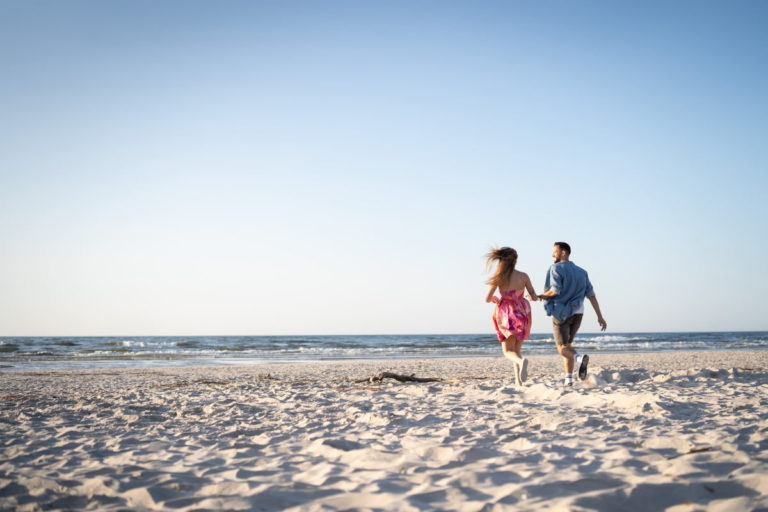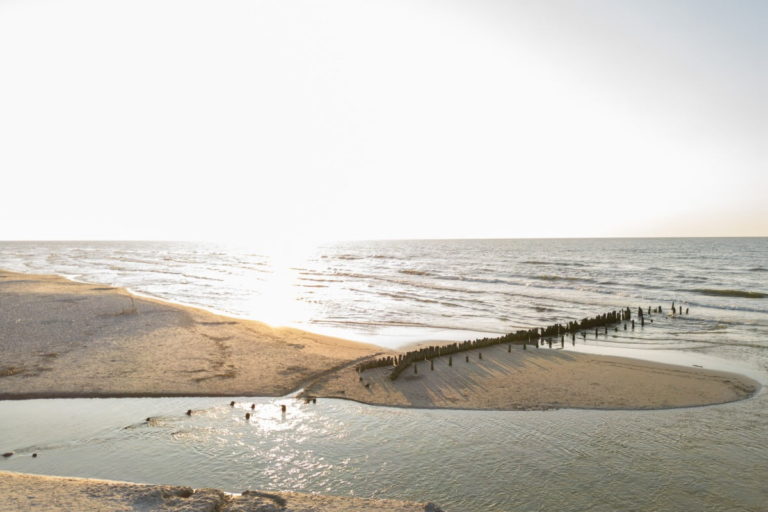Coldwater swimming, also known as winter swimming, is an activity that is gaining more enthusiasts with each passing year. During the winter, lakes, rivers, and our Polish Baltic Sea are frequented by groups of people who enjoy coldwater swimming together.
The Polish Baltic Sea is beautiful year-round. In winter, it draws enthusiasts of coldwater swimming. Even on the beach in Dębki, one can meet many brave individuals ready to confront the cold, the winter sea breeze, and their own weaknesses. Why is coldwater swimming worthwhile, and what should you keep in mind to take cold baths safely?

Health benefits of coldwater swimming
It is widely believed that coldwater swimming brings many health benefits. It significantly boosts immunity. Brief exposure to low temperatures can increase the production of white blood cells, which are crucial in fighting infections. It also improves circulation by delivering more oxygen and nutrients to the tissues. Coldwater swimming also enhances overall endurance, improves mood, and contributes to better sleep. Additionally, coldwater swimming requires considerable discipline and willpower, which, in turn, affects our mental health.
Interestingly, even older children and seniors can engage in coldwater swimming. However, before embarking on coldwater bathing, consult a doctor if you have any medical conditions.
Coldwater swimming by the sea
Coldwater swimming is possible almost anywhere. It’s a good idea to start with a calm practice, such as taking a cold shower at home. An outdoor hot tub is also a suitable place for such activity. However, the Polish Baltic Sea is a real treat for all enthusiasts of this activity. If you plan to swim in the sea, it’s advisable to practice in different natural settings first. Coldwater swimming requires preparation not only in terms of physical fitness but also in warm-up exercises before entering the water, proper attire, and rest after leaving the sea. Breathing practice is also inseparable from coldwater swimming. Breathing control is crucial during coldwater swimming, which increases our chances of enduring in unfavorable temperatures.


Coldwater swimming in the Baltic Sea – Tips and guidelines
- Those starting with coldwater swimming should gradually acclimate to the cold water, beginning with short baths and gradually extending the time. Avoiding thermal shock is extremely important.
- Ensure safety and swim in a group. During major events, paramedics are often present on-site.
- Remember to warm up. Running or aerobic exercises are necessary before immersing yourself in icy water.
- Attire for coldwater swimming: swimwear, protective footwear, a cap, gloves.
- Exercise caution during the first entry. Allow your body to acclimate to the cold. Maintain breathing control and closely observe how your body reacts. The standard duration of coldwater swimming typically ranges from 3 to 5 minutes, but don’t force yourself to stay in the water for such a long time right away. Pay attention to your body.
- After finishing coldwater swimming, thoroughly dry yourself with a towel and wear warm clothing. It’s also recommended to drink hot tea to quickly regain warmth.
- Before and after coldwater swimming, avoid alcohol, energy drinks, and smoking.


